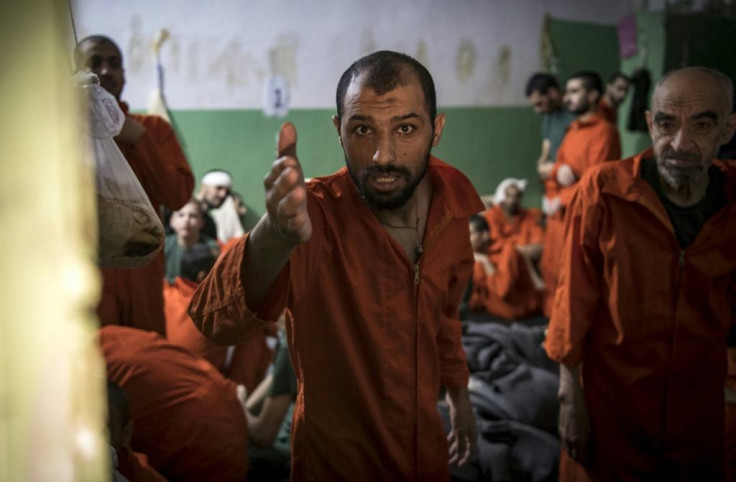IS attacks Syria prison, freeing jihadists: monitor
Relatives of jihadists, including children, are kept in Kurdish-controlled camps in Syria's northeast
The Islamic State group attacked a Kurdish-run jail in northeast Syria on Thursday, freeing fellow jihadists, a war monitor reported without specifying how many escaped.
Kurdish-led Syrian Democratic Forces confirmed the rare attack in a statement but did not mention any prisoners fleeing.
According to the Britain-based Syrian Observatory for Human Rights, a car bomb hit the entrance of the Ghwayran prison and a second blast went off in the vicinity before IS jihadists attacked Kurdish security forces manning the facility.
"A number of prisoners managed to escape," said the Observatory which relies on a network of sources inside Syria. It did not specify how they managed to break out.
Ghwayran is one of the largest facilities housing IS fighters in a semi-autonomous region controlled by Kurdish authorities in northeast Syria, Observatory head Rami Abdul Rahman told AFP.
"A new insurgence and attempted escape by Daesh terrorists detained in Ghwayran prison in al-Hasaka in conjunction with an explosion of a car bomb," the Syrian Democratic Forces statement said, using an Arabic acronym for IS.
It blamed the attack on "Daesh sleeper cells, who infiltrated from the surrounding neighbourhoods and clashed with the Internal Security Forces."
The Observatory said the SDF has dispatched reinforcements to the prison and cordoned off the area.
Aircraft belonging to the US-led international coalition battling IS hovered over the facility and dropped flares in its vicinity, the monitor added.

The coalition was not immediately available for comment.
In a later statement, SDF spokesperson Ferhad Sahmi said that "the situation inside the prison is now under control."
"There are intermittent clashes with IS fighters hiding in the vicinity of the prison," he told AFP.
According to Kurdish authorities, more than 50 nationalities are represented in a number of Kurdish-run prisons where more than 12,000 IS suspects are now held.
From France to Tunisia, many of the IS prisoners' countries of origins have been reluctant to repatriate them, fearing a public backlash at home.
Relatives of jihadists, including children, are kept in Kurdish-controlled camps in Syria's northeast, the largest of which is Al-Hol with around 56,000 displaced people and refugees.
The IS group's self-declared caliphate, established from 2014, once stretched across vast parts of Syria and Iraq and administered millions of inhabitants.
A long and deadly military fightback led by Syrian and Iraqi forces with backing from the United States and other powers eventually defeated the jihadist proto-state in March 2019.
The remnants of IS mostly went back to their desert hideouts from which they continue to harass Syrian government and allied forces.
Earlier this month, IS fighters shot dead an aid worker with the Kurdish Red Crescent at the Al-Hol camp.
Last week, an IS attack near Syria's border with Iraq killed five Syrian pro-regime fighters and wounded 14 others, according to the Observatory.
Copyright AFP. All rights reserved.
This article is copyrighted by International Business Times, the business news leader





















